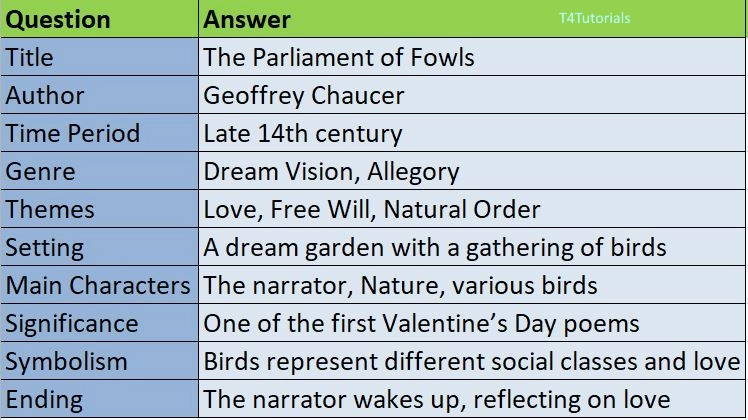Summary:
The Parliament of Fowls is a dream vision poem written by Geoffrey Chaucer in the 14th century. The poem explores themes of love, free will, and the natural order. It is one of the earliest examples of Valentine’s Day literature and is believed to have been inspired by the marriage negotiations of King Richard II. The narrator, likely Chaucer himself, describes reading Cicero’s The Dream of Scipio, which leads him into a dream where he enters a beautiful garden. There, he finds a gathering of birds—from eagles to sparrows—led by Nature, who serves as their ruler. The birds have gathered to choose mates, and three male eagles compete for the love of a single female eagle. However, she refuses to make an immediate choice, asserting her right to decide. Nature allows her to wait a year before choosing. The rest of the birds, impatient with the debate, break into joyful singing and celebrate love in their own way. The poem ends as the narrator wakes up, reflecting on the nature of love and the complexity of human relationships.
10
Score: 0
Attempted: 0/10
Subscribe
| Question | Answer |
| Title | The Parliament of Fowls |
| Author | Geoffrey Chaucer |
| Time Period | Late 14th century |
| Genre | Dream Vision, Allegory |
| Themes | Love, Free Will, Natural Order |
| Setting | A dream garden with a gathering of birds |
| Main Characters | The narrator, Nature, various birds |
| Significance | One of the first Valentine’s Day poems |
| Symbolism | Birds represent different social classes and love ideals |
| Ending | The narrator wakes up, reflecting on love |